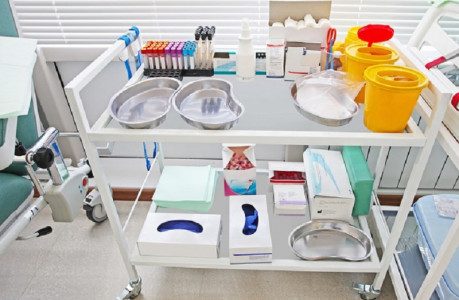Personalizing Your Recovery: Tailoring Outpatient Treatment For Depression

Tailoring outpatient treatment for depression is a crucial aspect of effective mental health care. Personalized treatment ensures that the specific needs, symptoms, and circumstances of the individual are addressed. This approach not only enhances the effectiveness of the treatment but also provides a sense of empowerment to those undergoing therapy.
What Is Outpatient Treatment For Depression?
The outpatient treatment for depression is an approach that takes into account a group of therapies. Here, the care users do not need to stay in mental health centers. It is not that intense and involves more therapies. This is why the approach to treatment is quite normal. Not only this, but you can carry on your normal schedule of work.
The treatment includes individuals or groups and is now done online. The use of prescriptions, mainly the medications like antidepressants may also be a part of the therapy.
The Working Of Outpatient Treatment For Depression
The outpatient treatments for depression can work in not one but different ways. The treatment or therapy includes sessions with some other mental health. Outpatient therapies for depression include some specific treatments that include light therapy, electroconvulsive therapy, psychedelic-assisted therapy, and Transcranial magnetic stimulation.
While magnetic therapy is all about being exposed to white light, ECT is typically used for people with treatment-resistant depression.
Psychedelic-assisted therapy involves using psychedelic drugs like psilocybin; the TMS or magnetic stipulation is all about specific therapy for the brain.
The Outpatient Treatment For Depression’s Use
The therapies or treatments are best suited for treating people with depression inpatient treatment. The outpatient treatment is best suited for those who need constant support daily. This treatment is also specialized for those who can cope with the treatment right from home.
On the other hand, inpatient treatment for depression is suited mainly for people with thoughts of suicide. This approach of treatment is also suitable for those who are suffering from substance use.
The Top Benefits Of Outpatient Treatment For Depression
Outpatient treatment for depression has multiple benefits. Let us discuss them in detail so that you have a better understanding of the treatment methodology.
Enhanced Performance
One of the benefits of outpatient treatment for depression is that it enhances the academic performance of some of the students. The student especially did well on improved concentration, increased productivity, and overall academic performance.
Interpersonal skills
Increasing interpersonal skills is one of the keys to attaining access to academic and professional life. Being a part of the peer groups helps the student share their experience. It helps in developing the major skills. It is highly important as part of the overall development.
Outpatient Treatment For Depression Helps Care Users Reduce Complications
One of the major benefits that the care users reap with the help of this approach in treatment is reducing the complications. The individual who remains stressed in life becomes overwhelmed with each and multitasking. But with the help of the therapies, they improve their overall performance.
Apart from all the benefits that we discussed above, treatment is highly beneficial for students who suffer from complexities like PATD, Trauma, and Co-occurring disorders. These benefits have made the treatment approach highly acceptable and popular among care receivers and care providers.
Personalizing Treatment: Initial Step
The initial step in personalizing treatment is a comprehensive assessment. A mental health professional evaluates the individual’s mental health history, current symptoms, and life circumstances. This thorough evaluation is essential in creating a treatment plan that is specifically designed for the individual’s unique situation.
Role Of Therapy
Central to outpatient treatment, therapy is meticulously tailored to cater to the individual’s unique needs. Therapists utilize different modalities and interpersonal therapies, aligning the approach with what best suits the individual’s needs and preferences. This personalized therapy approach proves instrumental in addressing the intricacies of the individual’s depression, ensuring that the therapeutic interventions are finely tuned to provide targeted support and facilitate a more effective journey toward mental health recovery.
Medication Management
The aspect of medication management is also individualized within outpatient treatment. When medications form a part of the treatment plan, a psychiatrist or medical professional meticulously customizes the type and dosage of medication based on the individual’s specific needs. Regular follow-up appointments are conducted to assess the effectiveness of the medication and cope with the side effects, with adjustments made to the treatment plan as and when required. This approach to management and medication makes sure that individuals receive the most suitable and effective pharmacological support tailored to their unique requirements.
Lifestyle Modifications
Lifestyle modifications play a significant role in personalized treatment. Recommendations for changes in diet, exercise, sleep habits, and stress management are made based on the individual’s lifestyle and how it impacts their depression. Implementing these changes can greatly improve overall well-being and support the recovery process.
The Inclusion Of Family
The inclusion of family or significant others in the treatment process can also be personalized. In some cases, family therapy sessions may be beneficial, while in others, educating family members about depression and how to offer support may be more appropriate. Tailoring this aspect of treatment helps strengthen the individual’s support system.
Self-Care Strategies
Self-care strategies are developed in collaboration with the therapist. These strategies are tailored to the individual’s interests and lifestyle, ensuring they are practical and enjoyable. Engaging in self-care activities that resonate personally can significantly enhance the treatment’s effectiveness.
Evaluation And Adjustment Of The Treatment Plan
Finally, ongoing evaluation and adjustment of the treatment plan are vital. As the individual progresses through treatment, their needs may change. Regular check-ins with mental health professionals allow for adjustments to the treatment plan, ensuring that it continues to meet the individual’s evolving needs.
Conclusion
Customizing outpatient treatment for depression is imperative for ensuring an effective recovery process. This personalized approach is meticulously designed to align the treatment plan with the unique and specific needs of the individual, significantly enhancing the likelihood of a successful recovery journey. By tailoring interventions to the intricacies of the individual’s condition, outpatient treatment becomes a finely tuned and targeted process, fostering an environment that optimally supports the individual’s mental health recovery and overall well-being.
Read Also:





























Leave A Reply